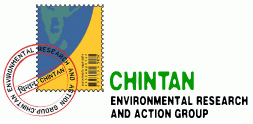
Chintan Environmental Research and Action Group
New Delhi, India
Website: chintan-india.orgPrimary information
- Language
- English
- Type of members
- Waste picker support organization
- Occupation of members
- Waste collectors
- Type of Organization
- Non governmental organization
- Organizational Reach
- Local
- Workplace of members
- Door to door, Open, Sorting center, Street
- Organization Structure
- Non-governmental organization (NGO) registered under the Registration of Societies Act of 1860. Run by a board.
- Objectives
- Social equity, encourage sustainable practices, contribute to cleaning the environment, improve waste picker living conditions, improve waste picker working conditons, capacity building, awareness raising, fight against discrimination and poverty, recognition of waste pickers, improve livelihoods
- Funding
- Donor funded
- Women composition
- Mostly men collect waste, while women work as domestic workers and help men segregate waste at home.
Social networking sites
Benefits
Services
- Activities
- Collecting waste, Composting, New items made from collected materials, Recycling, Sorting waste
- Sorting Spaces
- Sorting center
- Treatmet of organic materials
- Composting
Complementary Information
- Information source
- WORD 9/7/2010, ASIA 2013
Comments / Narrative
Chintan addresses issues of sustainable consumption and social equity. Seeks to improve consumption choices and practices that benefit both our health and our environment and encourage practices that are sustainable and do not burden the poor. Mission: To work with the Informal sector involved in municipal solid waste management in enhancing their living as well as working conditions and assisting them to optimize their skills and role in the waste management sector as well as build their capacity to contribute to a healthy, safe society. To educate citizens about their environmental duties and means of implementing them. To help and encourage children of various strata of society to determine their own role in environmental preservation. To help the Informal waste sector to be able to build social defence mechanisms in order to move from being marginalized to mainstream participants and contributors to the social and economic development of the country. To find suitable means of involving the Informal waste sector in formal, organized delivery of waste related services in India . To stem biodiversity loss taking place through the inflow of toxics through research, campaigning and advocacy. To identify and reduce the manufacture and consumption of hazardous wastes and materials through research, campaigning and advocacy. To facilitate the rationalization of packaging used through better laws and material consumption as well as education and fiscal steps.

